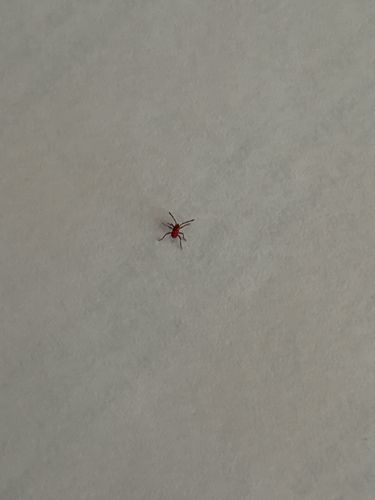Red Grass Mite / Concrete Mite
Scientific Name: Balaustium putmani or Balaustium murorum (or other similar species within the Trombidiidae or Tetranychidae families often colloquially grouped as concrete mites)
Order & Family: Acari, Tetranychidae or Trombidiidae (depending on specific species, but often generalized as "Red Mites")
Size: Approximately 0.5 mm to 2 mm in length. They are very small, often appearing as tiny red dots.

Natural Habitat
Commonly found in sunny, open areas like concrete surfaces, sidewalks, driveways, rock walls, and bark mulch. They prefer dry conditions.
Diet & Feeding
They feed on plant juices, particularly sap from various plants, including grasses and weeds. They can also feed on pollen and fungal spores.
Behavior Patterns
They are often found crawling on sunny surfaces like sidewalks, patios, and walls. Their activity is highest during warm, dry periods. They typically move quickly and can be seen in large numbers.
Risks & Benefits
Generally considered harmless to humans, as they do not bite or transmit diseases. However, they can be a nuisance when present in large numbers, as squashing them can leave red stains on surfaces or clothing. They are not significant agricultural pests.
Identified on: 8/14/2025